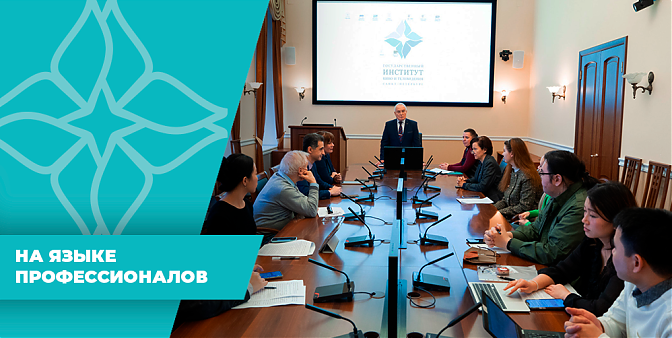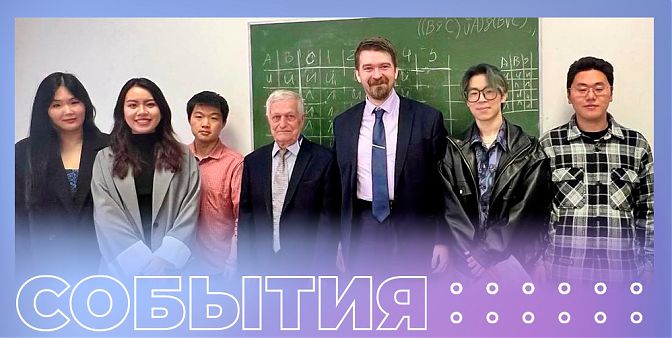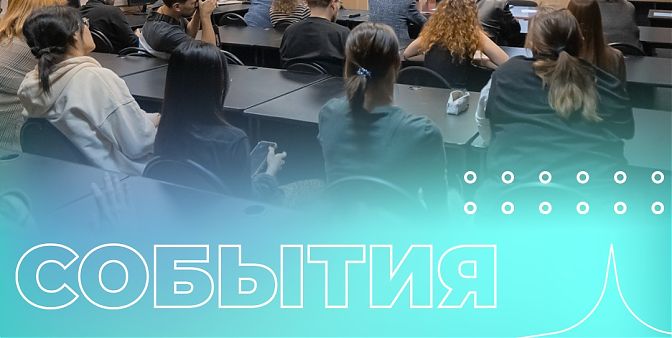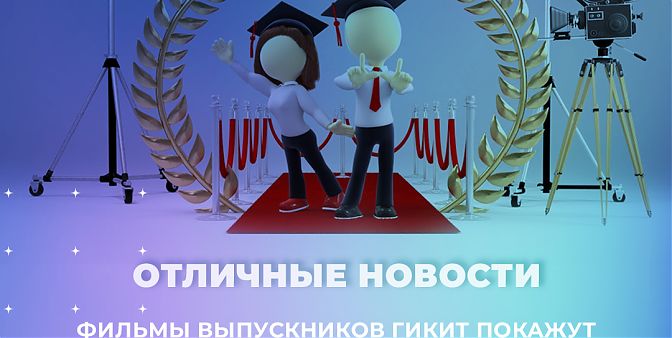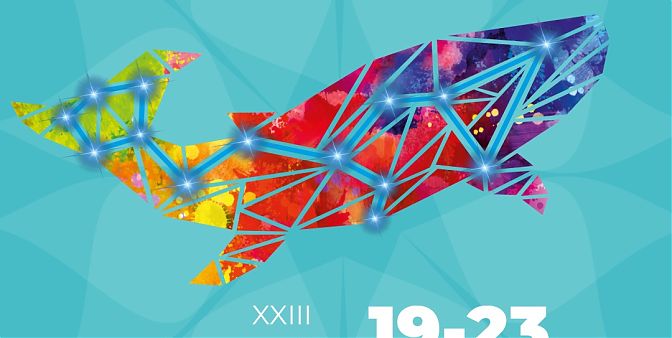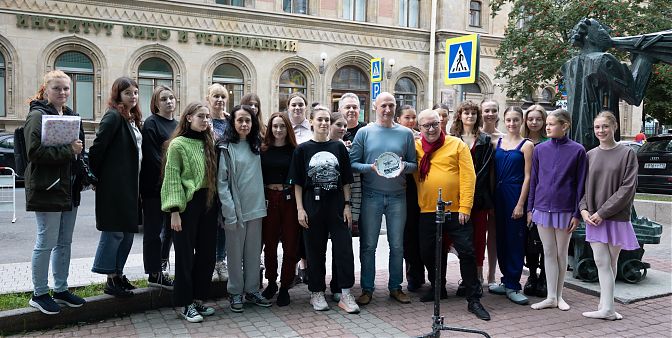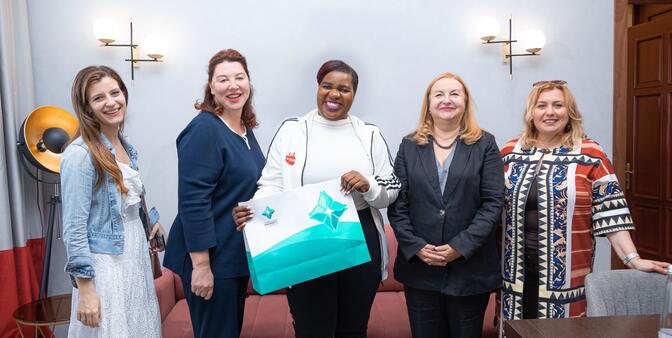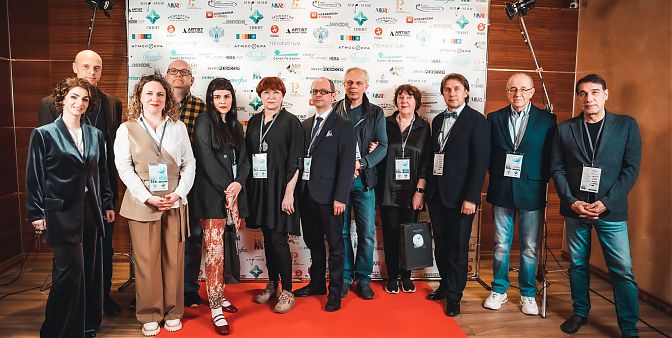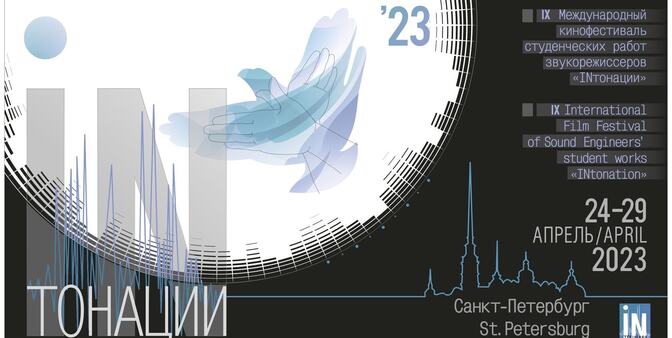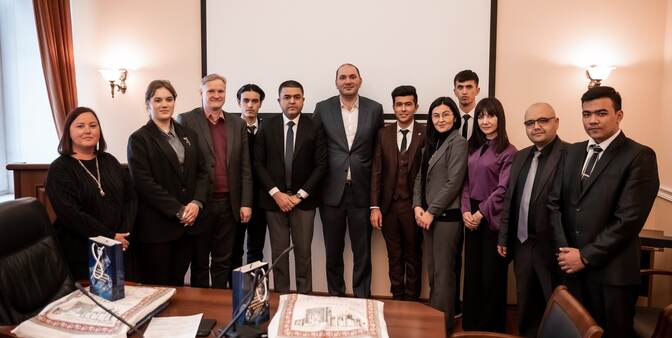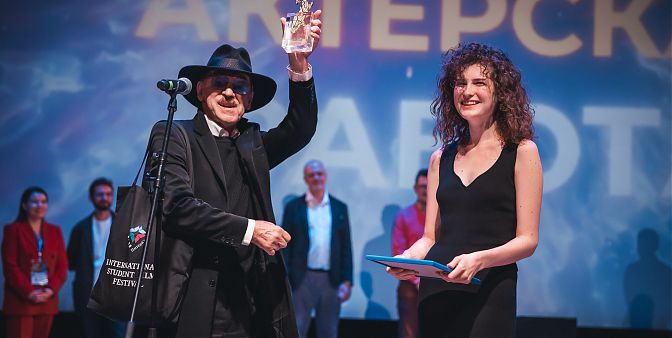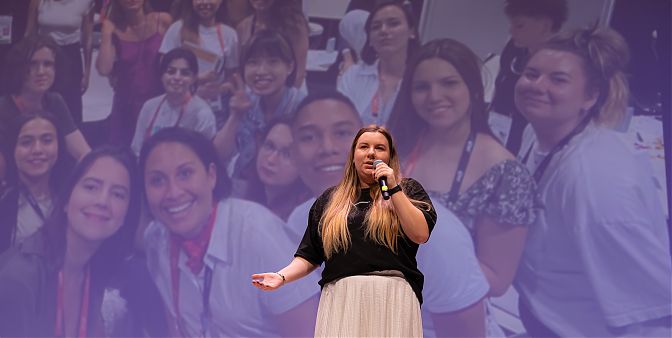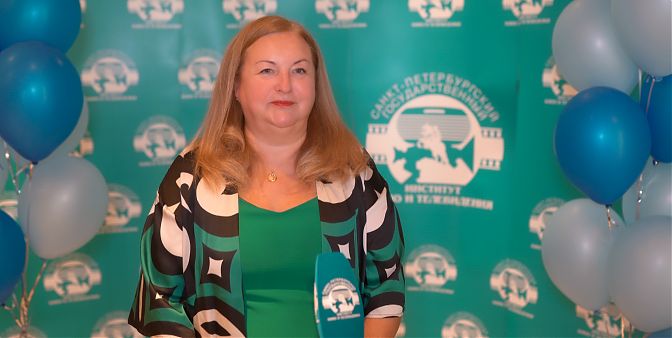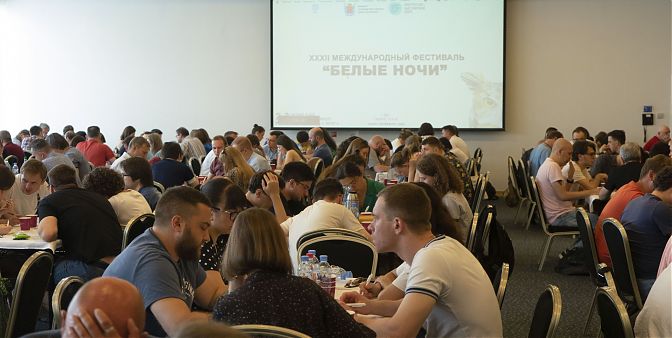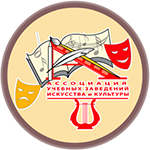18.10.2019
Confident position of the SPUFT scenario school at the world congress

From October 7 to October 11, 2019, for the first time in Russia, the Congress of the international association of film and television schools CILECT 2019 was held. This international organization was founded in Cannes in 1954. Today it includes 180 film schools from 65 countries bringing together more than 9 thousand teachers who annually train about 55 thousand students. CILECT strives to develop and promote the latest standards of education, research and teaching forms of film and television by creating and organizing international and regional forums for the exchange of artistic, pedagogical, methodological and managerial practices of all its members.

St. Petersburg State University of Film and Television (SPUFT), which has long and fruitfully collaborated with CELECT, this year in Moscow was represented by the Department of Drama and Film Studies. Polina Stepanova spoke at the scientific section devoted to the latest teaching methods of screenwriting and directorial skills. The head of the master's program "Dramaturgy" read the report "Structural Constructions of Oriental Theories of the Development of Action as a New Field for Creating a Script".
The section was moderated by world-famous cinema figures: Herman Van Aiken, a cinematographer who has received many awards and has experience in writing scripts, producing and directing, Raul Lopez Echeverría, who represents UG at FEISAL (Federation of Islamic and American Latin Americans), writer, director and editor, laureate of the New York International Film Festival "The Door" and the Biarritz Amérique Latine Film Festival (Domingo), etc.

The scientific part of the conference "Dramaturgy & Media. Challenges & prospects of interaction" was opened by the headliners: screenwriter and experienced teacher Yuri Arabov with the report "Anti-format: Modernity and Prospects", as well as Lev Manovich, one of the leaders in theoretical digital culture, with the report" How to watch one million films". In 2014, this lecturer was included in the famous list of "50 Most Interesting People Building Future".
Among the speakers was Yu Ran, associate professor of television at the Communication University of China, chairman of the Shadow Studios Laboratory and coordinator of the Program of International Seminars of Professors. It was he who was awarded the CILECT Teaching Award 2019 - A Promising Young Teacher. Another speaker is Nick Powell, who created Virgin Records with Richard Branson. In ten years, they managed to grow from a small company into an organization with multimillion-dollar turnover. While Nick was the principal of the famous British National School of Film and Television (NFTS), student films created under his direction received numerous BAFTA awards and Academy Award nominations. Former Chairman of the European Film Academy, BAFTA Film Committee and Chevalier dans lordre des arts et Lettres., as well as many others. As you can see, participants in the congress are known and influential throughout the world.

In this context, the report of the associate professor of our university sounded not just weighty, but original and innovative. It was dedicated to the interaction of script structures of different cultures. In Russian practice and the theory of creating a dramatic work (play or script), the basis is the structure indicated in Aristotle's Poetics. At the stages of the production of films and series in modern practice, the structural constructions developed by American researchers dominate. For example, S. Field’s paradigm, R. Mackey’s five-part structure, K. Vogler’s "journey of the writer". Internet culture maximizes the perception of the modern viewer. The opportunity to see almost any visual content from anywhere in the world almost immediately after the official premiere creates a field of new communications and poses problems of interaction between various dramatic structures. Both the viewer and the creator of the film production gain experience of interethnic and intercultural relations, dramatic structures begin to change under the influence of various "structures of thinking".
That is why teaching scripting, relying solely on the Aristotelian apparatus through American interpretations, is now not enough. Studying and using in practice markers of other dramatic theories existing in the world may become important in the process of teaching scripting. The Indian "Natyashastra", the Chinese treatise "The Origins of the Pear Orchard" and the Japanese text "The Tradition of the Flower of Style", which are different from Aristotle, contain not only new techniques for the screenwriter, aspects of the problems and the structure of the development of the action, but help to better understand films already created in Eastern culture. The merging and interpenetration of the Russian, European, American and Eastern theories of dramatic development can become a unique springboard for the formation of new structural and genre aspects in modern scenario writing practice.
In this sense, the speech of the representative of SPUFT was recognized as absolutely innovative. After the report, the moderators expressed surprise that such methods and ways of creating a dramatic construction are possible in principle, and appreciated the originality of the approach presented in the report by the associate professor of St. Petersburg State University of Film and Television. The report also provoked positive feedback from a highly respected audience and the interest of many scientists around the world. So, Yu Ran (China) was surprised to learn that the structure of Chinese dramaturgy is not only taken into account but is also used productively by the St. Petersburg school. And Nick Powell admitted that this is the first time he has encountered such an approach and would like to learn more about it for further implementation in his practice.
At the congress, the idea was voiced that this theoretical basis, original and innovative, was already successfully implemented in the process of implementing the main educational programs "Dramaturgy", as well as many others in St. Petersburg State University of Film and Television. That is how students are trained in creative workshops as part of the project approach implemented at our institute for the past seven years. It already gives practical results.
And here is just one example. The script of the student-playwright R. Verbilo, made using oriental structures, formed the basis of the film “Madozha” directed by the student-director A. Buava. After successful pitches, the film crew was joined by students - the future sound engineer E. Zavgorodnev, cameraman A. Ryzhenkov, a group of producers. The leading actors of the workshop were L.P. Brain V. Gudkov, A. Podkolzin, A. Bashkirov, V. Evtukhov. As a result, the film, created by the efforts of students of all cinematic specialities and areas of training, became the laureate of the famous International Film Festival "Global India International Film Festival".
The participation of our speaker in the Congress of the International Association of Schools of Film and Television CILECT strengthened the position of SPUFT as a modern, innovative and popular school for training future filmmakers.
Svetlana Melnikova, Head of the Department of Dramaturgy and Film Studies, Doctor of Arts, Professor
Nadezhda Shibaeva, assistant professor of drama and film studies.


